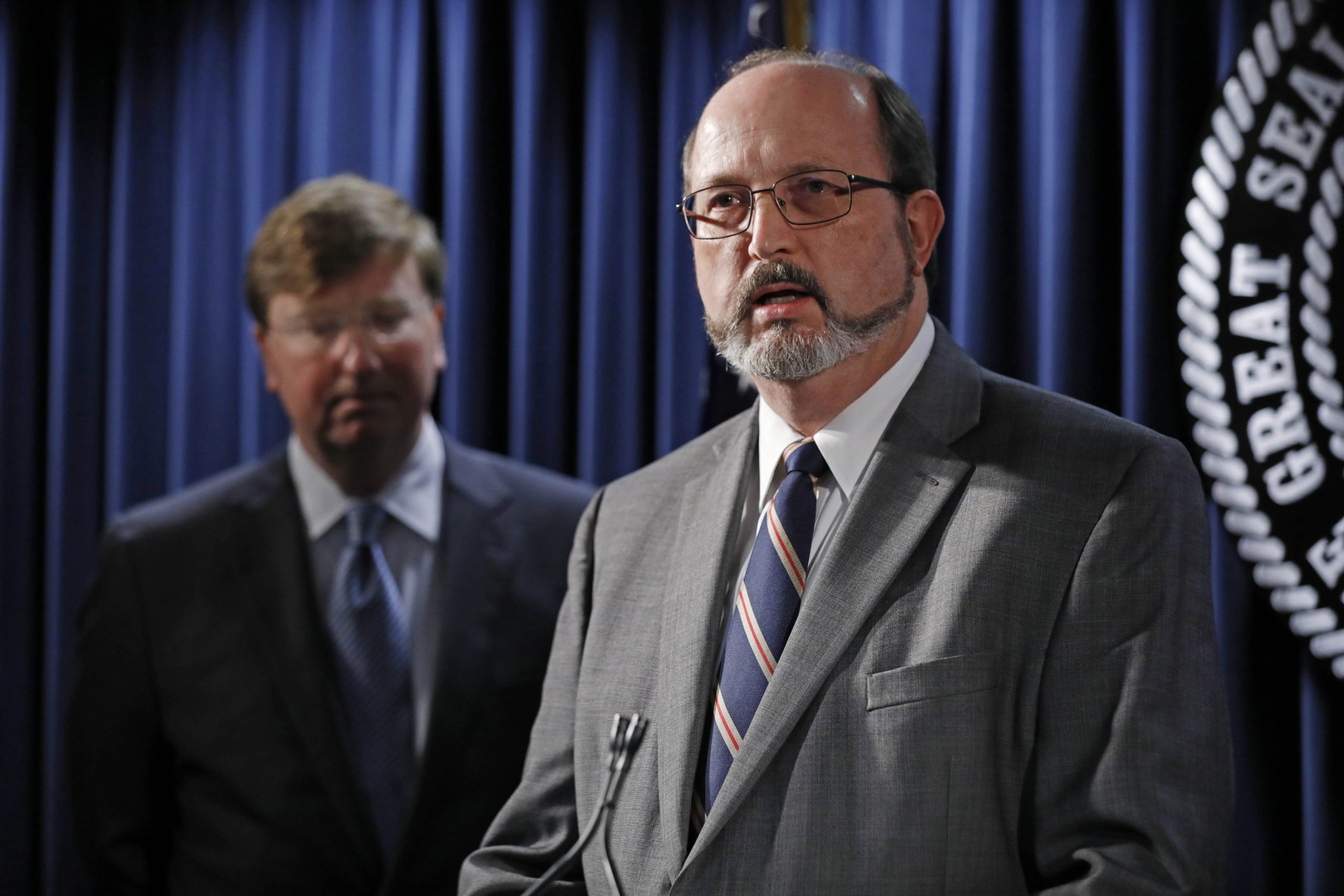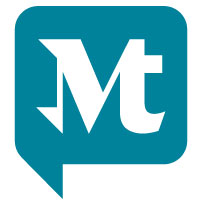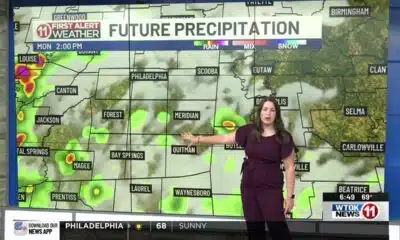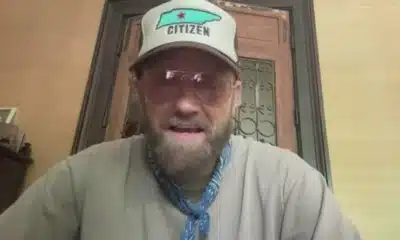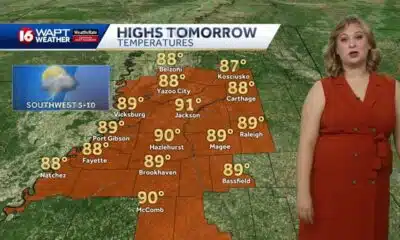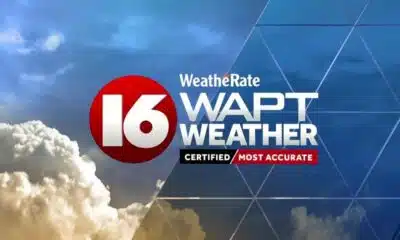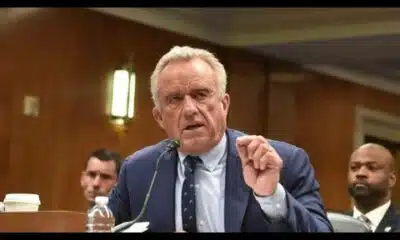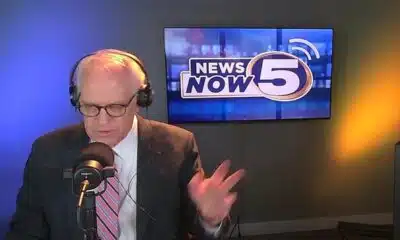Mississippi Today
State leaders still won’t fix scandalous welfare program that serves few poor families
State leaders still won’t fix scandalous welfare program that serves few poor families
Now that Mississippi’s welfare department isn’t hemorrhaging federal grant funds as a result of widespread mismanagement and political corruption, it has over $100 million to spare.
But the agency, Mississippi Department of Human Services, won’t say what it’s going to do with the money; whether it’s going to try to reach more needy families; or how it’s going to finally start tracking outcomes of the program.
In the three years following arrests in the largest public fraud scandal in state history, the agency led by Gov. Tate Reeves has never released a full accounting of its current welfare expenditures. There isn’t even a list of organizations receiving the funding on the agency’s website, nor are its subgrant agreements available online.
And lawmakers, in their seventh week of the Legislative session, haven’t taken one action to address the logjam. Instead, they’ve killed at least 11 bills aimed at improving the administration of the agency and its funds, as well as at least five amendments offered to do the same on the floors of both chambers.
All the bills filed to address these problems were killed by Republican committee chairs without debate, and all the amendments were introduced by Democrats and voted down by Republicans, primarily along party lines.
“(Mississippi Department of Human Services) has certainly not held up to its mission or its responsibility to those who need it the most,” said Rep. Omeria Scott, D-Jones, who offered an amendment to the MDHS appropriations bill on Wednesday to make increases to the agency’s budget, which Republicans reduced. “I do hate that through the general bills process that there was no legislation for a board, or no legislation for any of these audits that are in this appropriations bill, that we got any reports or any demands or anything like that. That has not been before us, and I imagine won’t be before us, but let me say to you that there are areas over there in Human Services that need some escalation.”
While Republican leadership says it has cleaned up fraud within the agency, that doesn’t mean the welfare program, called Temporary Assistance for Needy Families, is reaching the needy or helping people enter the workforce. In fact, during the height of the scandal, the state was using more of its TANF funds to help more poor Mississippians than it is today.
In 2022, a monthly average of 246 adults and 2,265 children benefited from the welfare check — no more than $260 for a family of three (a rate that was raised in 2021 for the first time since 1999). Mississippi is consistently among the most impoverished states in the nation with 1-in-5 of its residents living below the poverty line. The assistance is reaching about 4% of the more than half-a-million Mississippians living in poverty.
Meanwhile, the state continues to rack up tens of millions in welfare funds. By October of 2021, more than a year ago, Mississippi’s TANF program had amassed $97.9 million in unobligated funds. While the agency hasn’t released data showing how they spent the money within the last year, all indications are that the number of unspent TANF funds has only grown, especially since the state didn’t issue a single new TANF subgrant in 2022.
In October, MDHS Director Bob Anderson hesitated to say how his agency might spend the money, or whether it would use the funds to, for example, increase the number of child care vouchers it is able to provide to low-income families.
“Understand, people have a lot of other plans for that money as well,” Anderson said.
MDHS has refused to answer Mississippi Today’s questions about which people and what plans.
The sections of the TANF program that have received most public attention are:
- Cash assistance — the money that goes out directly to families who qualify for the welfare check
- Subgrants — the money that goes to organizations to provide TANF-related services, such as after school programs, parenting classes and workforce training
But these currently account for less than half of the state’s annual federal TANF grant.
And according to the state’s checkbook, the state spends millions of TANF funds each year on items outside of cash assistance or TANF subgrants — such as IT contracts, a contract with the company who conducts drug testing of welfare applicants, interagency transfers to the state auditor’s office or payments to the attorneys crafting the civil case against NFL legend Brett Favre and others. There has not been a public accounting of these purchases, nor have they been discussed in audits, legislative hearings or among lawmakers publicly.
Each year, the state also transfers a large chunk of TANF funds, the amount unknown to the public, to Mississippi Child Protection Services, the embattled state agency responsible for investigating child abuse and neglect and overseeing foster care across the state. The financial maneuver is preventing the state from taking advantage of unprecedented federal matching funds offered under the 2018 Family First Prevention Services Act to help families stay intact.
Aside from the scandalous stories about politicians and famous athletes funneling TANF money to their pet projects during former Gov. Phil Bryant’s administration, the welfare program itself is as forgotten and ignored as it was before the arrests.
Lawmakers passed a bill in 2021 to place law enforcement officers within MDHS’s Fraud Investigation Unit and a bill in 2022 to require that employees of the unit report civil or criminal violations to the state auditor’s office.
Neither of these changed how the agency runs its TANF grant or introduced any accountability for the agency to spend the money effectively.
In 2021, the first full year after the scandal was revealed, Mississippi spent just $35.6 million of the $86.5 million it receives in federal funds each year, according to federal reports released in December. The reports are typically outdated by about a year.
To put that into perspective: In 2018, Mississippi spent about $113 million in federal TANF funds (including some unspent funds from years before). If $50 million of that went to fraudulent or unallowed purchases, that leaves $63 million that Mississippi spent legally that year, including to organizations similar to those providing services today.
In 2018, at the height of the fraud scandal, the state pumped $7.3 million directly to families, whereas it only gave $3.5 million in cash assistance in 2021. Either way you slice it, Mississippi’s welfare department was using more TANF money to help more poor Mississippians during the years of Bryant’s appointed former MDHS Director John Davis, who is likely going to prison, than the agency is today under Reeves and Anderson.
Mississippi Department of Human Services previously told the public that it is allocating about $69 million of its TANF funds each year — $4.1 million on cash assistance, $34.5 million on subgrants to organizations and $30 million to plug budget holes at the Mississippi Department of Child Protection Services.
But it has not made documentation of these expenditures available to the public. Also, these figures are not clearly reflected in federal reports. In 2021, for example, the state only reported spending $15 million in TANF funds on “child welfare” – the only spending category that would appear to correspond with the CPS transfers.
The agency would not explain the reason for the discrepancies in the federal reporting, other than to say that it’s possible not all of the money that the state obligated was actually used. The department has also repeatedly failed to explain which purchases fall under which categories in the federal reports.
The state is allowed to use grant funds from one year to another for a period of three years. So funds being spent today could technically be coming from the state’s 2021 TANF grant. That, and the fact that some subgrants span more than one year, during which the subgrantee can draw the funds at their leisure, have perpetually created a foggy picture of the program.
The only documentation of TANF expenditures that MDHS appears to have made public, at the request of Mississippi Today, is a list of subgrantees to whom the state awards a fraction of the funds. This information does not appear on the agency’s website, nor in its annual report.
In mid-2020, the department provided to Mississippi Today a spreadsheet of TANF purchases that included, in addition to payments to subgrantees, expenditures for things like tech support or hotels for employee training. In October, Mississippi Today extracted and analyzed all purchases labeled under the TANF program from the state’s accounting database from 2015 to 2022, all of which Mississippi Today made publicly available, but the expenditures didn’t add up to nearly the amount the state reported spending to the federal government. Transfers from MDHS to CPS also do not appear on the state’s accounting database.
The department began the most recent Request for Proposals — a competitive bid process — for TANF subgrants in June of 2022. But due to staff changes within MDHS’s Division of Workforce Development and Partnership Management, a spokesperson said, the agency has not made an award.
“Once we have a finalized plan we will make a public announcement,” MDHS Chief Communication Officer Mark Jones offered in response to questions about the agency’s plan for the TANF program moving forward.
Even with the grants most recently awarded in 2021, it’s unclear what all of the organizations are accomplishing or how the programs align with a vision to reduce poverty. The current grants cover parenting initiatives ($8.1 million), after school programs ($13.7 million), and workforce development ($14.9 million). The subgrant agreements aren’t even available on Mississippi’s transparency website.
The largest award was a $6.9 million parenting initiative grant to Mississippi Children’s Home Society, or Canopy Solutions, a children’s behavioral health services provider, including a residential psychiatric facility. Canopy has been a TANF subgrantee for years and works within the foster care system to prevent family separations. Canopy also recently launched a specialized nonprofit school for students with learning differences in Ridgeland, essentially replacing the recently shuttered New Summit School by hiring its employees and recruiting its students.
New Summit closed after its founder Nancy New was charged within the welfare scandal. New was funneling TANF money to New Summit, a for-profit school, and also running a separate scam to defraud the Mississippi Department of Education, she admitted in her 2022 guilty pleas.
Other current TANF subgrantees include the Mississippi Alliance of Boys and Girls Clubs ($5.3 million), Save the Children Federation ($2.4 million), YMCA Metro Jackson ($1 million), and Juanita Sims Doty Foundation ($1 million) for afterschool programs; and Institutions of Higher Learning ($2.4 million), Mississippi Department of Employment Security ($1.5 million), South Delta Planning and Development District ($2.1 million), Southern MS Planning and Development District Gulfport ($3.6 million), Three Rivers Planning & Development District ($4.7 million) for workforce training.
Since welfare reform in the late 1990s, state leaders, workforce specialists, industry experts and advocates have met, studied, and discussed ad nauseam the barriers they’ve identified for families escaping poverty – chief among them child care, transportation and workforce training that aligns with market needs. The concept of TANF when Congress created it was to move people into the workforce, hopefully ending the reliance on government assistance.
Mississippi could be transferring up to 30% of its TANF funding to supplement the Child Care Development Block Grant, which provides child care vouchers to low-income working parents. The program has always served just a small fraction of low-income children needing child care across the state.
While legislation is not required for MDHS to make this transfer – since it has done so in the past, according to federal reports – the current Legislature has killed bills and amendments to compel MDHS to use TANF funds this way. And the agency refuses to answer questions about whether it will or, if not, why it won’t. The agency has, however, complained that without a budget supplement, 12,000 kids may be kicked off the voucher.
“From the beginning of the (TANF) program, there have been thoughts like, ‘We need to figure out a way to provide daycare. We need to figure out a way to provide transportation and that will help get a large number of people back into the workforce,’ which is said to be the aim of all these reforms,” Senate Public Health Committee Chair Hob Bryan, D-Amory, said during a floor debate on several TANF-related amendments last week. “And it is extremely frustrating that we have money that could be used for additional vouchers for childcare, so that there would be someone to care for children when their parent is at work and we’re not taking advantage of that. And yet we complain about people not working.”
This article first appeared on Mississippi Today and is republished here under a Creative Commons license.
Mississippi Today
UMMC hospital madison county
The University of Mississippi Medical Center has acquired Canton-based Merit Health Madison and is preparing to move a pediatric clinic to Madison, continuing a trend of moving services to Jackson’s suburbs.
The 67-bed hospital, now called UMMC Madison, will provide a wide range of community hospital services, including emergency services, medical-surgical care, intensive care, cardiology, neurology, general surgery and radiology services. It also will serve as a training site for medical students, and it plans to offer OB-GYN care in the future.
“As Mississippi’s only academic medical center, we must continue to be focused on our three-part mission to educate the next generation of health care providers, conduct impactful research and deliver accessible high-quality health care,” Dr. LouAnn Woodward, UMMC’s vice chancellor of health affairs, said in a statement. “Every decision we make is rooted in our mission.”
The new facility will help address space constraints at the medical center’s main campus in Jackson by freeing up hospital beds, imaging services and operating areas, said Dr. Alan Jones, associate vice chancellor for health affairs.
UMMC physicians have performed surgeries and other procedures at the hospital in Madison since 2019. UMMC became the full owner of the hospital May 1 after purchasing it from Franklin, Tennessee-based Community Health Systems.
The Batson Kids Clinic, which offers pediatric primary care, will move to the former Mississippi Center for Advanced Medicine location in Madison. This space will allow the medical center to offer pediatric primary care and specialty services and resolve space issues that prevent the clinic from adding new providers, according to Institutions of Higher Learning board minutes.
A UMMC spokesperson did not respond to questions about the services that will be offered at the clinic or when it will begin accepting patients.
The Mississippi Center for Advanced Medicine, a pediatric subspecialty clinic, closed last year as a result of a settlement in a seven-year legal battle between the clinic and UMMC in a federal trade secrets lawsuit.
The changes come after the opening of UMMC’s Colony Park South clinic in Ridgeland in February. The clinic offers a range of specialty outpatient services, including surgical services. Another Ridgeland UMMC clinic, Colony Park North, will open in 2026.
The expansion of UMMC clinical services to Madison County has been criticized by state lawmakers and Jackson city leaders. The medical center does not need state approval to open new educational facilities. Critics say UMMC has used this exemption to locate facilities in wealthier, whiter neighborhoods outside Jackson while reducing services in the city.
UMMC did not respond to a request for comment about its movement of services to Madison County.
UMMC began removing clinical services this year from Jackson Medical Mall, which is in a majority-Black neighborhood with a high poverty rate. The medical center plans to reduce its square footage at the mall by about 75% in the next year.
The movement of health care services from Jackson to the suburbs is a “very troubling trend” that will make it more difficult for Jackson residents to access care, Democratic state Sen. John Horhn, who will become Jackson’s mayor July 1, previously told Mississippi Today.
Lawmakers sought to rein in UMMC’s expansion outside Jackson this year by passing a bill that would require the medical center to receive state approval before opening new educational medical facilities in areas other than the vicinity of its main campus and Jackson Medical Mall. Republican Gov. Tate Reeves vetoed the legislation, saying he opposed an unrelated provision in the bill.
This article first appeared on Mississippi Today and is republished here under a Creative Commons Attribution-NoDerivatives 4.0 International License.
The post UMMC hospital madison county appeared first on mississippitoday.org
Note: The following A.I. based commentary is not part of the original article, reproduced above, but is offered in the hopes that it will promote greater media literacy and critical thinking, by making any potential bias more visible to the reader –Staff Editor.
Political Bias Rating: Center-Left
The article presents a primarily factual report on UMMC’s expansion into Madison County, outlining the medical center’s services and strategic decisions while including critiques from Democratic leaders and local officials about the suburban shift. The inclusion of concerns over equity and access—highlighting that the expansion is occurring in wealthier, whiter suburbs at the expense of services in majority-Black, poorer neighborhoods—leans the piece toward a center-left perspective, emphasizing social justice and community impact. However, the article maintains a measured tone by presenting statements from UMMC representatives and government officials without overt editorializing, thus keeping the overall coverage grounded in balanced reporting with a slight progressive framing.
Mississippi Today
Rita Brent, Q Parker headline ‘Medgar at 100’ Concert
Nationally known comedian Rita Brent will host the Medgar & Myrlie Evers Institute’s “Medgar at 100” Concert on June 28.
Tickets go on sale Saturday, June 14, and can be ordered on the institute’s website.
The concert will take place at the Jackson Convention Complex and is the capstone event of the “Medgar at 100” Celebration. Organizers are calling the event “a cultural tribute and concert honoring the enduring legacy of Medgar Wiley Evers.”
“My father believed in the power of people coming together — not just in protest, but in joy and purpose, and my mother and father loved music,” said Reena Evers-Everette, executive director of the institute. “This evening is about honoring his legacy with soul, celebration, and a shared commitment to carry his work forward. Through music and unity, we are creating space for remembrance, resilience, and the rising voices of a new generation.”
In addition to Brent, other featured performers include: actress, comedian and singer Tisha Campbell; soul R&B powerhouse Leela James; and Grammy award-winning artist, actor, entrepreneur and philanthropist Q Parker and Friends.
Organizers said the concert is also “a call to action — a gathering rooted in remembrance, resistance, and renewal.”
Proceeds from the event will go to support the Medgar & Myrlie Evers Institute’s mission to “advance civic engagement, develop youth leadership, and continue the fight for justice in Mississippi and beyond.”
This article first appeared on Mississippi Today and is republished here under a Creative Commons Attribution-NoDerivatives 4.0 International License.
The post Rita Brent, Q Parker headline 'Medgar at 100' Concert appeared first on mississippitoday.org
Note: The following A.I. based commentary is not part of the original article, reproduced above, but is offered in the hopes that it will promote greater media literacy and critical thinking, by making any potential bias more visible to the reader –Staff Editor.
Political Bias Rating: Centrist
This article presents a straightforward, factual report on the upcoming “Medgar at 100” concert honoring civil rights leader Medgar Wiley Evers. The tone is respectful and celebratory, focusing on the event’s cultural and community significance without expressing a political stance or ideological bias. It quotes organizers and highlights performers while emphasizing themes of remembrance, unity, and justice. The coverage remains neutral by reporting the event details and mission of the Medgar & Myrlie Evers Institute without editorializing or promoting a specific political viewpoint. Overall, it maintains balanced and informative reporting.
Mississippi Today
Future uncertain for residents of abandoned south Jackson apartment complex
Residents at Chapel Ridge Apartments in Jackson are left wondering what to do next after months dealing with trash pileups, property theft and the possibility of water shutoffs due to the property owner skipping out on the bill.
On Sunday, Ward 5 Councilman Vernon Hartley, city attorney Drew Martin and code enforcement officers discussed next steps for the complex, which, since April 30, has been without a property manager.
“How are you all cracking down on other possible fraudulent property managers around Jackson?” one woman asked Martin.
“ We don’t know they’re there until we know they’re there, and I know that’s a terrible answer, but I don’t personally have another one I’m aware of right now,” Martin said. “These individuals don’t seem to have owned another apartment complex in the Metro Jackson area, despite owning a whole bunch nationwide.”
Back in April, a letter was left on the door of the leasing office advising residents to not make rental payments until a new property manager arrives. The previous property managers are Lynd Management Group, a company based in San Antonio, Texas.
The complex has been under increased scrutiny after Chapel Ridge Apartments lost its solid waste contract mid-March due to months of nonpayment. The removal of dumpsters led to a portion of the parking lot turning into a dumping site, an influx of rodents and gnats, and an investigation by the Mississippi Department of Environmental Quality. Local leaders pitched in to help remedy the situation, and in May, Waste Management provided two dumpsters for the complex.
However, the problems persisted. In May, JXN Water released the names of 15 apartment complexes that owe more than $100,000 in unpaid water fees. Chapel Ridge was on the list. JXN Water spokesperson Aisha Carson said via email that they are “pursuing legal options to address these large-scale delinquencies across several properties.”

“While no shutoffs are imminent at this time, we are evaluating each case based on legal feasibility and the need to balance enforcement with tenant protections. Our focus is on transparency and accountability, not disruption—but we will act when needed to ensure the integrity of the system,” Carson said.
And earlier this week, Chapel Ridge Apartments was declared a public nuisance. Martin said this gives the city of Jackson “the authority to come in, mow the grass and board up any of the units where people aren’t living.”
Martin said the situation is complicated, because the complex is owned by Chapel Ridge Apartments LLC. The limited liability corporation is owned by CRBM Realty Inc. and Crown Capital Holdings LLC, which are ultimately owned by Moshe “Mark” Silber. In April, Silber was sentenced to 30 months in prison for conspiracy to commit wire fraud affecting a financial institution. Earlier this month, both companies filed for bankruptcy in New Jersey.

Now, Martin said the main goal is to find someone who can manage the property.
“Somebody’s got to be able to collect rent from you,” Martin said. “They got to be able to pay the water. They got to be able to pay the garbage. They got to be able to pay for the lights to be on. They got to maintain the property, so that’s our goal is to put that in place.”
Chapel Ridge offers a rent scale based on household income. Those earning under 50% of the area median income — between $21,800 and $36,150 depending on household size — for example, pay $480 for a two-bedroom and $539 for a three-bedroom unit. Rent increases between $20 and $40 for those earning under 60% of the area median income.
Valarie Banks said that when she moved into Chapel Ridge nearly 13 years ago, it was a great community. The disabled mother and grandmother moved from West Jackson to the complex because it was neatly kept and quiet.
“It was beautiful. I saw a lot of kids out playing. There were people that were engaging you when you came out. They were eager to help,” Banks said. “ I hope that they could bring this place back to the way it once was.”
But after months of uncertainty, Banks is preparing to move. She said she’s not the only one.
“I have somewhere to go, but I’m just trying to get my money together so I can be able to handle the deposits and the bills that come after you move,” she said. “All of my doctors are around here close to me. In 12 years, I made this place home for me. … I’ve been stacking my rent, but it’s still not enough if I want to move this month.”
While she said she’s holding onto her rent payments for the time being, she realizes that many of her fellow residents may not be as lucky. Without someone to maintain the apartments, some residents are finding themselves without basic amenities.
“Some people are in dire straits, because they don’t have a stove or a fridge or the air conditioner,” she said. “Their stove went out, or the fridge went out, or they stole the air conditioner while you’re in the apartment.”
Banks isn’t the only one who is formulating a plan to leave. One woman, who asked to remain anonymous, said she’s been trying to save money to move, but she already has $354 wrapped up in a money order that she’s unable to pass off for her rent, due to the property manager’s recent departure.
“It really feels like an abandonment and just stressful to live where I’m living at right now. This just doesn’t happen. It just feels stressful. It doesn’t feel good at all,” she said.
She’s trying to remain optimistic, but as each day passes without someone to maintain the property, she’s losing hope.
“ I just hope that things get better some day, somehow, hopefully, because if not, more than likely I’m going to have to leave because I can only take so much,” she said. “I can’t continue to deal with this situation of hoping and wishing somebody comes, and they don’t.”
This article first appeared on Mississippi Today and is republished here under a Creative Commons Attribution-NoDerivatives 4.0 International License.
The post Future uncertain for residents of abandoned south Jackson apartment complex appeared first on mississippitoday.org
Note: The following A.I. based commentary is not part of the original article, reproduced above, but is offered in the hopes that it will promote greater media literacy and critical thinking, by making any potential bias more visible to the reader –Staff Editor.
Political Bias Rating: Center-Left
This article from *Mississippi Today* primarily focuses on the struggles of low-income residents at Chapel Ridge Apartments, emphasizing the human impact of property mismanagement, regulatory gaps, and systemic neglect. The piece maintains a factual tone, but it centers the voices of vulnerable tenants and local officials seeking accountability—hallmarks of a center-left perspective. While it does not overtly advocate for policy change, the narrative framing highlights social injustice and institutional failures, subtly aligning with progressive concerns about housing equity and corporate responsibility.
-
Mississippi Today5 days ago
Retired military officer: In America, the military is not used against its own citizens for law enforcement
-
News from the South - Missouri News Feed6 days ago
Repeated problems at Raytown park frustrate neighbors
-
News from the South - South Carolina News Feed7 days ago
SLED investigates Florence traffic stop amid racial profiling allegations
-
News from the South - Florida News Feed5 days ago
Former Jacksonville radio host Mark Kaye announces he’s running for Congress, bashes current Rep. John Rutherford
-
News from the South - Georgia News Feed7 days ago
Georgia GOP's attempt to block Brad Raffensperger from running as a Republican may go nowhere
-
News from the South - Florida News Feed7 days ago
HHS Secretary Robert F. Kennedy Jr. firing every member of panel that makes vaccine recommendations
-
News from the South - Alabama News Feed7 days ago
News 5 NOW at 8:00am |Tuesday, June 10, 2025
-
News from the South - North Carolina News Feed7 days ago
State-federal tensions over ICE rise as Trump deploys troops against Los Angeles protests
